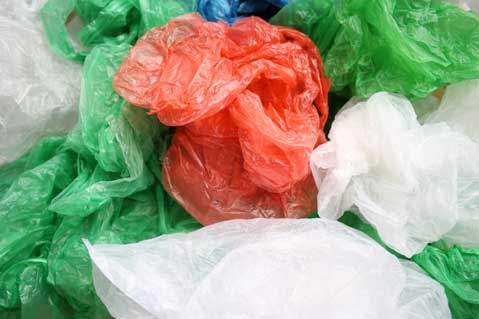March 14, 2017
Battle Over Plastic Bag Bans Heats Up
Single-use plastic bags are at the center of escalating legislative battles playing out across the United States. While environmental advocates and eco-minded lawmakers have scored recent victories in their fight to ban the bags, business groups and other legislators have intensified resistance to such prohibitions, earning wins of their own.

The debate is relevant for the promotional products industry because single-use plastic bag bans can potentially fertilize local markets for more sales of branded reusable bags as both businesses and consumers seek replacements for the prohibited disposables.
In recent years, a growing number of cities have moved to restrict single-use plastic bags. Proponents argue that the bans protect against the litter pile-up, waterway pollution and harm to wildlife they say is caused by discarded plastic bags. Last week, bag ban advocates were thrilled when the South Carolina legislature rejected a bill that would have prevented cities and counties in the state from banning plastic bags. A narrow 50-49 vote in the state House torpedoed the bill for 2017. Even so, last month the South Carolina state Senate voted in favor of the bill. That, plus the close vote in the House, suggests an attempt to prevent municipalities and counties from instituting bag bans could re-emerge in the future.
Meanwhile, just up in the road in North Carolina, state House representatives last week filed a bill that would repeal plastic bag bans that apply to certain coastal areas of the state. The bill already passed a first reading in the House, but must undergo a lengthy legislative process before it can become law. In Minnesota, a similar initiative is gaining steam. A committee in the State House recently voted 10-7 to stop local ordinances that would restrict single-use plastic bags, though the restriction has not been ratified by the full legislature.
In another Upper Midwestern state, bag ban opponents have already scored a major victory. In late December, Michigan legislators adopted a new law that prohibits local governments from passing ordinances that ban, regulate or impose fees on plastic bags and other containers, including bottles, cups and various types of packaging. Arizona, Idaho and Missouri have taken similar actions.
Proponents of prohibiting local governing bodies from instituting bag bans say the rules are necessary to prevent a patchwork of legislation that is confusing and costly for businesses and consumers. Similarly, outlawing bag bans protects businesses from overregulation, they say. “With many of our members owning and operating locations across the state, preventing a patchwork approach of additional regulations is imperative to avoid added complexities as it relates to day-to-day business operations,” said Robert O’Meara, VP of government affairs for the Michigan Restaurant Association.
Nonetheless, some 200 municipalities in the U.S. have prohibited or restricted one-time use containers. And now, more U.S. cities are pressing forward with plans to ban single-use plastic bags. Newport City Council in Rhode Island voted unanimously last week to adopt an ordinance that restricts businesses from using or selling single-use plastic bags. The City Commission in Coral Gables, FL was expected to today (March 14) discuss an ordinance that would implement a bag ban. Relatedly, bills (House Bill 93; Senate Bill 162) circulating in the Florida legislature would also allow certain municipalities to establish pilot programs for bag bans. Elsewhere, city government leaders in Fargo, ND, Moorhead, MN, and Portsmouth, NH, are working on bag bans.
The flurry of activity around bag bans comes following a landmark vote in California last November. In the Golden State, voters upheld a state-wide ban on single-use plastic bags. “This is above and beyond politics,” Vince Lago, a Coral Gables city commissioner who favors banning single-use plastic bags, told the Miami Herald. “There’s no reason why we should not be protecting our environment, especially when we have aging infrastructure which suffers when plastic bags become clogged in the system.”

Product Hub
Find the latest in quality products, must-know trends and fresh ideas for upcoming end-buyer campaigns.
